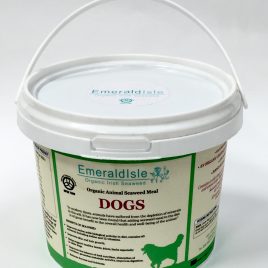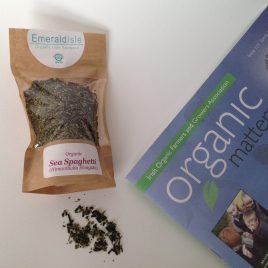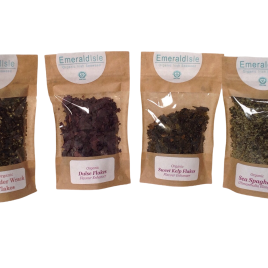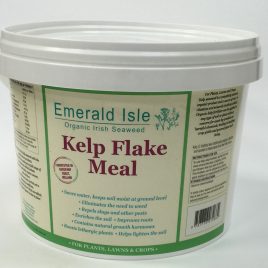Description
Spirulina is rich in Vitamins A, C, E and the B-complex vitamins. These vitamins are found in their natural form.
Spirulina is rich in natural minerals including Calcium, Iron and Magnesium and is also rich in proteins, including the essential amino acids.
Spirulina has antioxidant and anti-inflammatory properties, the main active compound is Phocyanin . It has powerful antioxidant and anti-inflammatory properties(1)
Spirulina studies show that it may reduce blood pressure. A higher dose of spirulina has been shown to lead to lower blood pressure levels, a major risk factor for many diseases(2)
Spirulina capsules can be effective against allergic rhinitis, helping to reduce various symptoms (3)
Spirulina supplementation, studies have shown that may enhance endurance, and one study shows that it can increase muscle strength and vitality.(4)
Spirulina, May help with blood sugar control.
Nutritional Analysis per 100 grams
Fat (% of dry matter) 0.6 – 1.8
Protein (% of dry matter) 7.81
Carbohydrates (% of dry matter) 48
Vitamin C (ppm, ug/g) 122.81
Calcium (mg/kg) 9400
Iron (mg/kg) 103
Magnesium (mg/kg) 26520
Manganese (mg/kg) <1.0
Sodium (mg/kg) 8.40
Copper (mg/kg) 8.1
Iodine (ppm, ug/g) 70
B12 (ug) 10
Vitamin B complex by Se-Kwon Kim and Puji Rahmadi.
Sea lettuces are a source of vitamins from group B (MacArtain et al., 2007; McDermid and Stuercke, 2003). For instances, Ulva lactuca contain high amount of cobalamin or vitamin B12. Vitamin B12 plays a key role in homeostasis of the brain and nervous system, and for the formation of blood (Scalabrino, 2009). Daily ingestion of 1.4 g/day of Ulva lactuca will be enough to meet the daily requirements of vitamin B12 (MacArtain et al., 2007). One of the most important vitamins B occurring in Ulva reticulata is riboflavin (vitamin B2). Vitamin B2 deficiency is often endemic in human populations that subsist on diets poor in dairy products and meat. Vitamin B2 cannot be synthesized by mammals, and there is only limited, short-term storage capacity for this vitamin in the liver. Humans are vulnerable to develop a vitamin B2 deficiency during periods of dietary deprivation or stress, and this may lead to a variety of clinical abnormalities, such as growth retardation, anemia, skin lesions, and degenerative changes in the nervous system. Therefore, this water-soluble vitamin should be present in the diet on a daily basis (Van Herwaarden et al., 2007).
Distribution:
Sea Lettuce – Ulva lactuca is a green seaweed / algae found worldwide. It is found on sheltered to moderately exposed rocks and shores, and in pools and shallow waters near the low watermark. It thrives in brackish waters, particularly in waters with organic enrichment. It is fairly common along the Irish Shoreline, but particularly on sheltered or moderately exposed shores
Harvesting:
We have always been careful where we harvest our Sea Lettuce from. Making sure that the surrounding area is clean and has a great tidal exchange and fast current.
Scientific Classification:
- Phylum : Chlorophyta
- Class : Ulvophyceae
- Order : Ulvales
- Family : Ulvaceae
- Genus : Ulva
- Species : Ulva lactuca (Linnaeus, 1753)
Common Names : Sea Lettuce
Irish – Glasán





